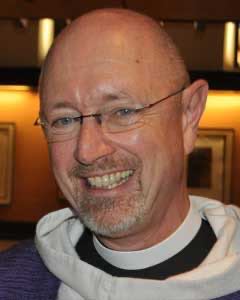It’s not subtle; it’s bold and direct, a commentary on social norms like those its author and director Adam McKay developed countless times when he was head writer for Saturday Night Live. Don’t Look Up functions both as satire and allegory about climate science. It raises important questions about where our information comes from as it offers commentary on the crucial difference between facts and opinions.
The premise is simple but frightening: Two scientists at Michigan State University identify a large comet rapidly approaching Earth. Its impact will destroy the planet. Seeking to warn and inform, they work through government systems, finally arriving at the office of the U.S. president. But neither the president nor anyone else in authority seems particularly concerned, and from there the plot unfolds.
It’s a collision between facts and politics in a culture war where news about celebrities grabs more public attention than information about imminent planetary disaster. Don’t Look Up nails the satire genre with its irony, sarcasm, parody, and exaggeration. As Jonathan Swift, the Anglican dean of St. Patrick’s Cathedral, Dublin, did in his monumental work Gulliver’s Travels, McKay spares no institution from searing indictments for their blatant ignoring of obvious facts: the political/military establishment, media/entertainment business and the high-tech industry are singled out and mercilessly satirized.
The political world is depicted as more focussed on winning elections than protecting the public. When a high-ranking military officer (Rob Morgan) arranges for scientists Randall Mindy (Leonardo DiCaprio) and Kate Dibiasky (Jennifer Lawrence) to meet President Janie Orlean (Meryl Streep) in the Oval Office to let her know about the comet’s approach to the earth, her response is to calculate how this news might affect the mid-term elections.
The media/entertainment business’s focus is more on celebrity culture than the looming cataclysm; in Don’t Look Up our scientists appear on a TV program called The Daily Rip, where the hosts Brie (Cate Blanchett) and Jack (Tyler Perry) joke and kibitz about celebrity romance and seek to make light of the bleak warning about the comet’s trajectory.
And the tech world is more concerned with its own ever-growing profits. Tech billionaire Peter Isherwell (Mark Rylance), the CEO of BASH Enterprises, is a top donor to the president’s political campaign; his team realizes that the comet contains minerals used to produce digital devices and develops a scheme to bring the comet in “safely” so that they can harvest the minerals for profits.
Getting elected, getting famous, getting rich: these are the values of politicians, media commentators and entrepreneurs—and all of them fail in their ability to sense the urgency of the situation unfolding. It’s a heavy-handed satire prone to exaggeration, but it makes a point: Most of us receive information from media conglomerates increasingly controlled by big tech in a time where winning is everything to our elected officials. This film invites its viewers to look up—to gain a broader perspective informed by science—and do what we can to help turn the tide of climate change.
Religion, too, comes in for its treatment in Don’t Look Up: near the end of the film, a small group has gathered to have one last meal before the comet strikes. When someone suggests that it would be good to pray, there is an awkward silence where it’s clear that no one knows how. It’s left to one of the guests, Yule (Timothée Chalamet) who was raised by evangelical Christians and found his way to faith. He offers a prayer, with all those round the table holding hands: “Almighty Creator, we ask for Your grace tonight, despite our pride. Your forgiveness, despite our doubt. Most of all Lord … we ask for Your Love to soothe us through these dark times. May we face whatever is to come in Your divine will with courage and open hearts of acceptance.” After the prayer, Yule’s girlfriend leans over, kisses him and says, “That was beautiful.”
It’s to Adam McKay’s credit that he adds a tender prayer into this cautionary tale. The plea that we “face whatever is to come … with courage” speaks to the anxiety of this time as the global pandemic and extreme weather continue to disrupt what once was normal. Without the resources of prayer and spiritual community, it’s easy to despair and lose hope.
While Don’t Look Up is too often a smug and cynical satire, it has an important mission—to encourage us all to look up, to see what’s happening, to pay attention, and to stay connected with what’s truly important.





